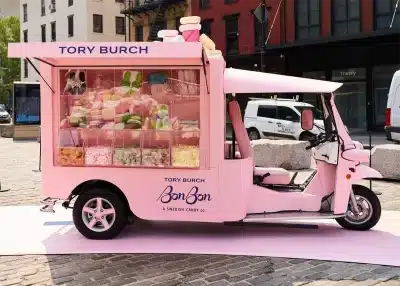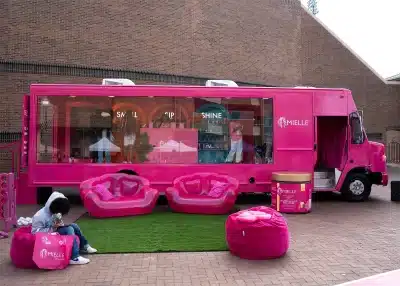This is because like with all senses, you can tailor tastes to be relevant to your audience. If you’re a fashion brand promoting a holiday collection, for example, you can hand out seasonal drinks that aligns with the spirit of the holiday season and your line.
Time and time again, sensory marketing proves that the best way to consumers’ hearts is through their stomachs. To prove it, let’s look more closely at how both food & beverage brands and brands in other industries have incorporate taste buds to sell their customers.


